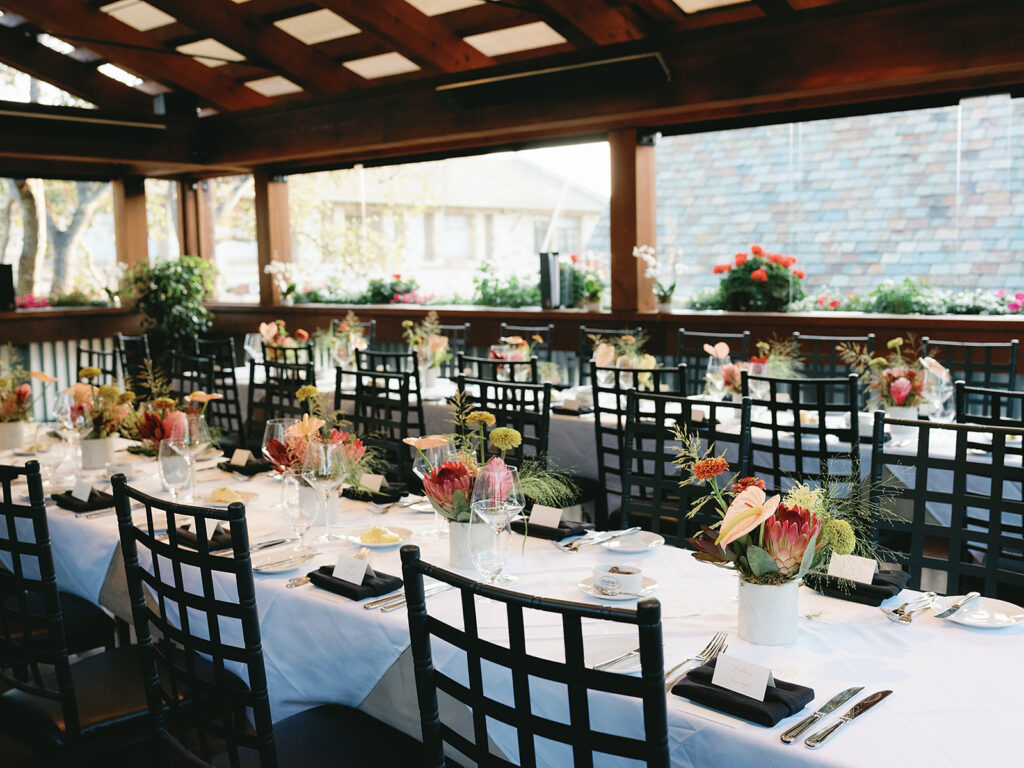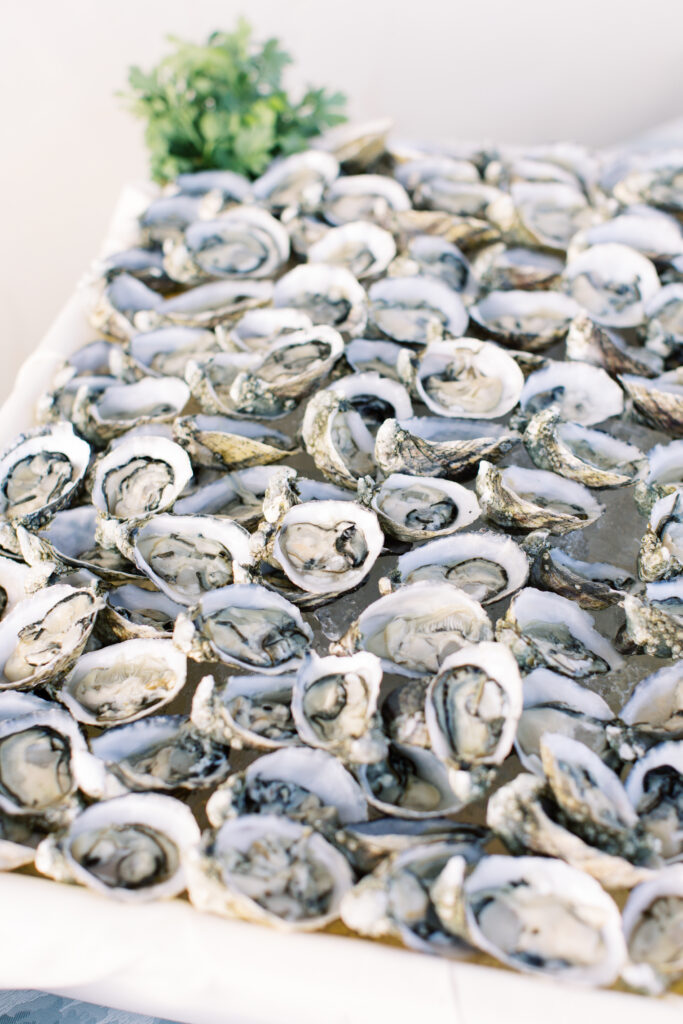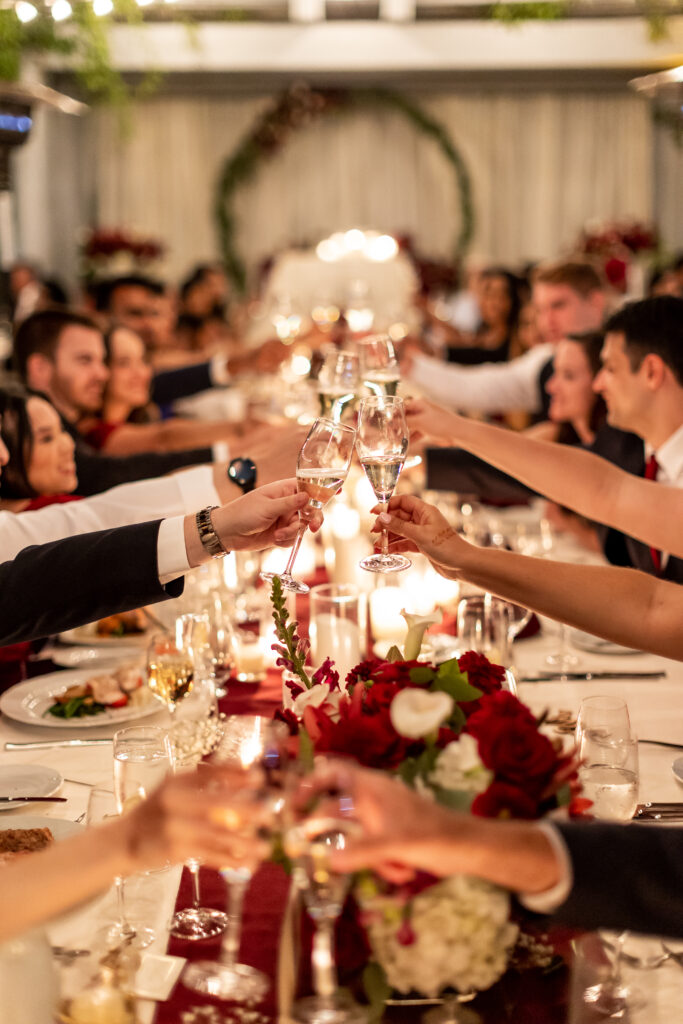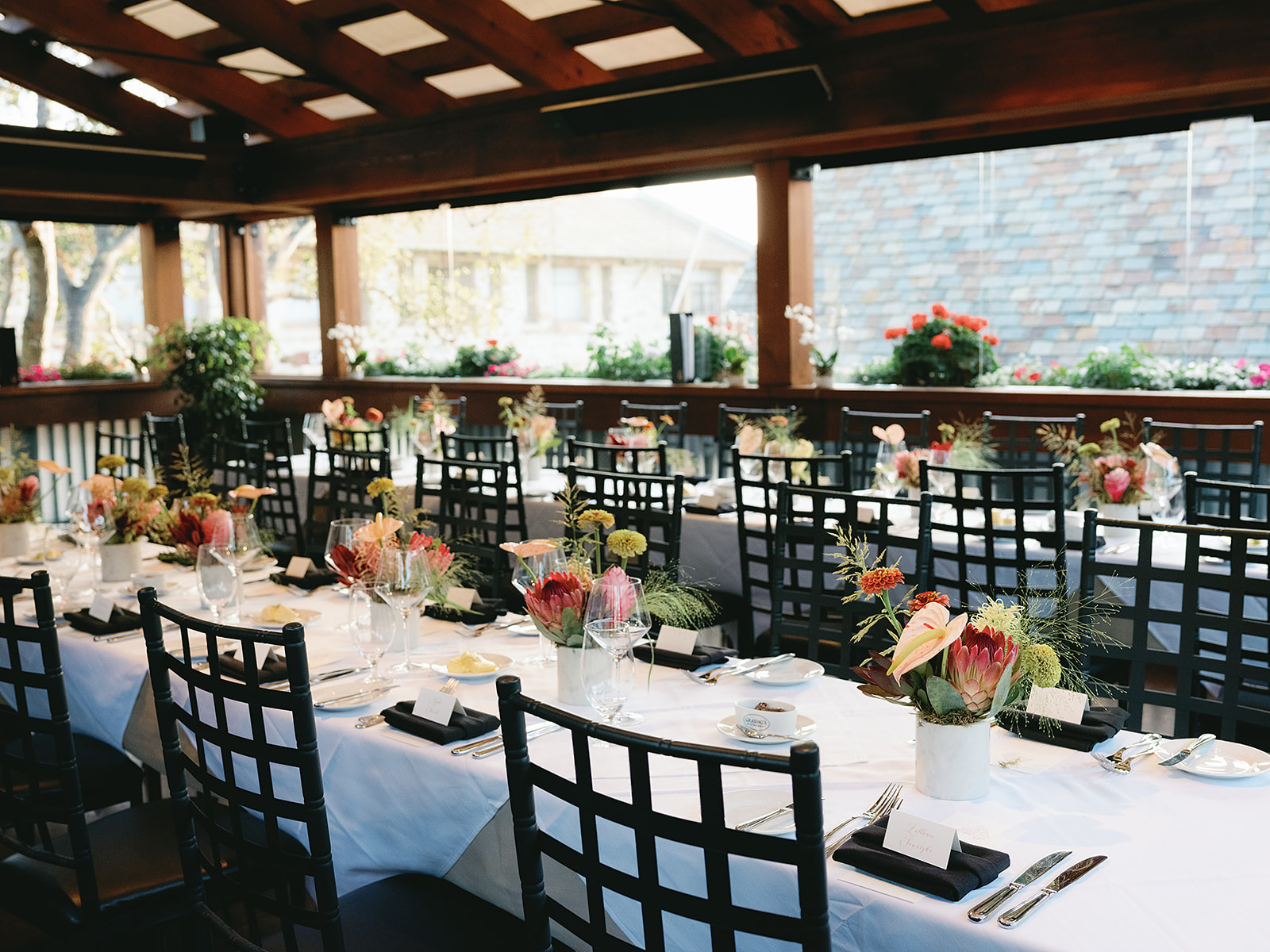Rehearsal Dinner vs. Welcome Party: What’s the Difference?
Every aspect of your special day is important, including the events leading up to it.
Both the rehearsal dinner and the welcome party play significant roles in setting the tone for your celebration. And each event offers its own charm and purpose. Understanding the nuances can help you plan a memorable experience for you and your guests.
Keep reading to learn the ins and outs of these pre-wedding festivities and how they differ.
Rehearsal Dinner
Purpose
The rehearsal dinner is an intimate gathering that typically takes place the night before your wedding ceremony. It allows close family and wedding party members to come together in a relaxed setting. It’s a chance to take a collective breath before the big day and ensure everyone is on the same page regarding the ceremony and festivities.
Guest List
The guest list typically includes immediate family members, the wedding party, and anyone else essential to the wedding day.
Venue and Atmosphere
When choosing a venue for the rehearsal dinner, consider the ambiance you want to create. It could be a cozy, private room at a restaurant or even a family home. The key is to select a location that exudes warmth and sets the stage for intimate conversations and laughter. Displaying personal touches, such as photographs or sentimental decor, can add a layer of sentimentality to the space.
Activities
Rehearsal dinners typically include a seated meal followed by heartfelt speeches. Traditionally, the groom’s family hosts and speaks, but this isn’t as common anymore. Now, the couple often hosts and the floor is open to anyone who wants to give a toast.

Photo: Radostina Photography https://radostinaboseva.com/ @radostina.photography
Welcome Party
Purpose
The welcome party is a lively gathering that takes place shortly after your guests arrive at the wedding destination. It’s a festive occasion designed to embrace and entertain your loved ones, especially those who have traveled, to help you celebrate. The party’s purpose is to create a relaxed and social environment, enabling guests to mingle, forge new connections, and get excited about the upcoming wedding festivities.
Guest List
This guest list is often broader than that of the rehearsal dinner. It includes all wedding guests who have traveled far and wide, not just the immediate family and wedding party. This inclusivity fosters a sense of community and ensures everyone feels embraced from the moment they arrive. It’s also an opportunity to introduce different groups of friends and family members, creating connections that will enhance the overall celebration.
Venue and Atmosphere
You can host your welcome party just about anywhere—from an indoor event space to a picturesque outdoor setting. Consider incorporating elements that reflect your wedding theme or destination, setting the stage for the weekend’s worth of celebrations.
Activities
Welcome parties often embrace a more relaxed and informal atmosphere, allowing guests to interact and engage. Serving light bites and beverages is always a great idea, especially for guests who may have traveled and could use something to eat. You can also incorporate just about any game, activity, or entertainment. I’ve seen paint-by-number, glow golf, lawn games, giant Lite Brites, daytime pool parties, and movie nights.
Key Differences Breakdown
Timing and Purpose
Rehearsal Dinner: Takes place the night before the wedding ceremony, immediately following the wedding rehearsal. Its primary purpose is to gather close family members and the wedding party to practice and familiarize themselves with the ceremony details. It offers a more formal setting for speeches, toasts, and bonding.
Welcome Party: Occurs shortly after guests arrive at the wedding destination. Its purpose is to welcome and entertain all wedding guests. The focus is on mingling, fostering connections, and building excitement for the upcoming celebrations.
Guest List
Rehearsal Dinner: Includes immediate family members, the wedding party, and close relatives. The guest list is more intimate, consisting of individuals directly involved in the ceremony or with a significant role in the couple’s lives.
Welcome Party: Open to all wedding guests. This broader guest list allows for mingling among social circles and creates an inclusive environment where new connections can form.
Venue and Atmosphere
Rehearsal Dinner Often occurs in private rooms at upscale restaurants, family homes, or elegant event spaces. The atmosphere tends to be more formal and intimate.
Welcome Party: Often held in venues that embody the spirit of the wedding destination. Whether it’s a scenic outdoor location, a beachside gathering, or a vibrant event space, the atmosphere is relaxed, vibrant, and festive.
Activities and Traditions
Rehearsal Dinner: Traditionally includes specific activities and traditions associated with weddings, such as speeches, toasts, and exchanging gifts. It’s a time to honor loved ones and express gratitude for their support throughout the wedding planning process.
Welcome Party: Lend themselves to more informal and interactive activities. These can include icebreaker games, photo booths, live entertainment, or cultural experiences that reflect the wedding destination. The focus is on creating an atmosphere of excitement, allowing guests to engage with one another and forge new connections.

Photograph AGS Photo Art @agsphotoart
Food and Drinks
Rehearsal Dinner: Typically features a seated dinner or a more formal buffet-style meal. The menu often consists of a carefully curated selection of dishes.
Welcome Party: From food stations and trucks to hors d’oeuvres and themed menus, the focus is on providing a variety of delicious bites and refreshing beverages.
Speeches and Toasts
Rehearsal Dinner: Known for their heartfelt speeches and toasts. It’s when family members, close friends, and the couple express their love, gratitude, and well wishes.
Welcome Party: May also include brief welcome addresses, but speeches and toasts are less common. The emphasis is on informal conversations and mingling rather than formal speaking engagements.
Budget
Rehearsal Dinner: Usually the least expensive event of the weekend, and there’s more wiggle room to make cutbacks if necessary. Offering a fixed menu, for example, costs less than giving guests an open choice.
Welcome Party: Typically a larger event, which means more logistics and moving parts. And that means more money. Licenses, staff, trash pick-up, and the like can add up quickly.
As you navigate the decision-making process for your rehearsal dinner and welcome party, remember that professional guidance can make all the difference in creating truly memorable pre-wedding events.
A wedding planner can bring expertise, creativity, and organizational skills to the table, helping you navigate the complexities of planning while relieving you of the stress that often comes with it.
If you feel overwhelmed or unsure about the details of your rehearsal dinner or welcome party, reach out, and let me help you plan your pre-wedding event!

Photograph Shannon Cronin Photography @shannoncronin
